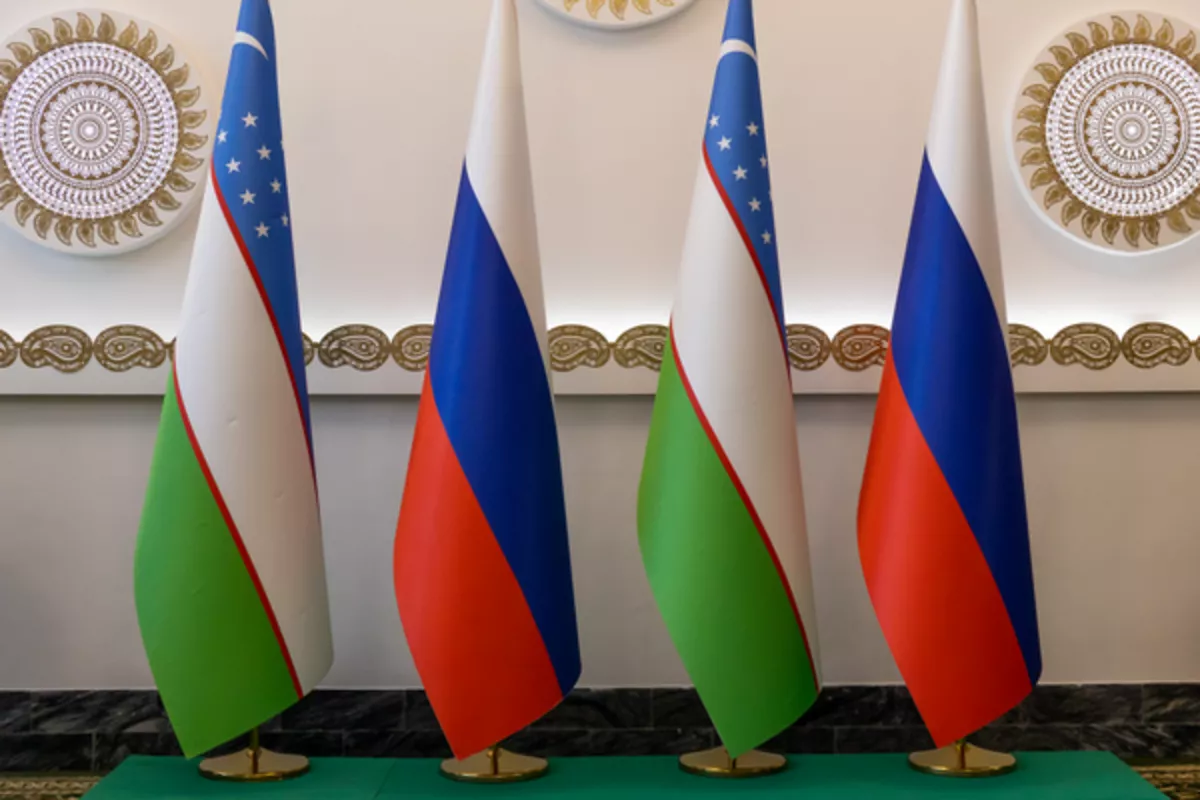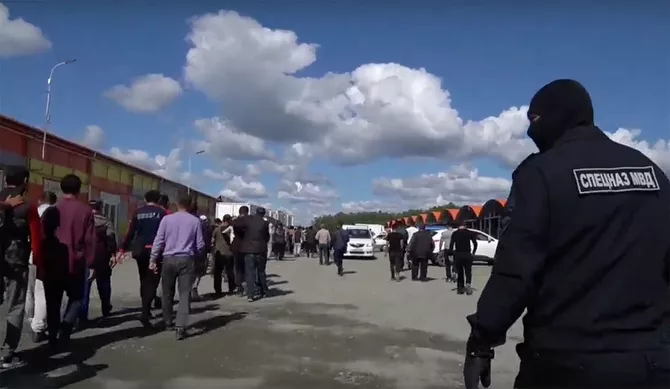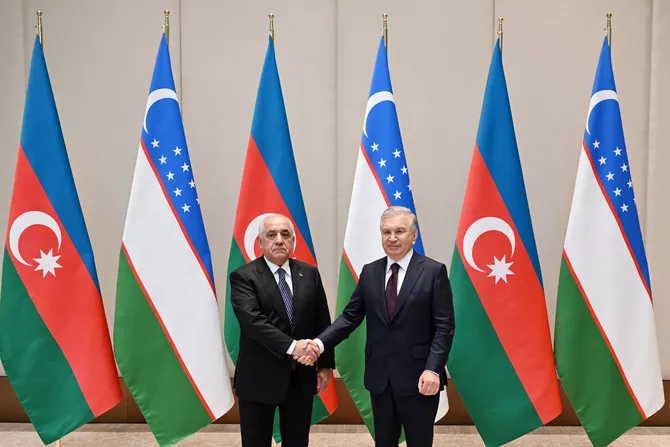
Photo credit: uzdaily.uz
On June 8, Russian law enforcement agencies launched a forceful raid on a dormitory housing migrant workers in Moscow.
Although official statements were vague and offered few details, the intent of the operation was apparent. The incident sparked significant concern in Tashkent, prompting the Migration Agency under the Government of Uzbekistan to issue a public statement. In it, the agency condemned the use of physical force by Russian National Guard officers against foreign nationals and urged any Uzbek citizens who had experienced violations of their rights or mistreatment to promptly contact Uzbekistan’s representative office in Russia.
The agency emphasized that in recent years, interest from the Russian government and major employers in the organized recruitment of Uzbek labor migrants has grown substantially. In this context, cases of abuse or aggressive behavior by certain representatives of Russian law enforcement are deeply regrettable and raise serious concerns. Uzbekistan’s message was clear: economic cooperation cannot be decoupled from respect for human dignity and basic rights.

Photo credit: 31tv.ru
The outrage was echoed more pointedly by the Rector of Uzbekistan’s University of Journalism and Mass Communications, who went as far as to characterize the actions of Russian security forces as “ordinary Nazism.” He noted that Central Asian migrants living in Russia are frequently subjected to humiliation and verbal abuse under the guise of document checks. This, he argued, stands in stark contrast to Moscow's rhetorical emphasis on “friendship” and “strategic partnership” in both diplomatic dialogue and state-controlled media narratives.
In a further escalation of the issue, on June 11, the Uzbek Embassy in Moscow formally submitted a diplomatic note to the Russian Foreign Ministry. The note requested clarification and a legal assessment of the Moscow OMON’s actions during the raid. This incident became a focal point of discussion at the regular monthly consultation between the foreign ministries of the two nations. The Uzbek side raised serious concerns about unauthorized searches and the disrespectful treatment of its citizens on Russian soil.
According to Uzbekistan’s Ministry of Foreign Affairs, the delegation underscored that such actions are completely incompatible with the declared friendly relations between Tashkent and Moscow. It urged Russian authorities to take concrete and effective measures to prevent similar incidents in the future. Uzbekistan’s representatives also called for adherence to international legal standards and the protection of human rights in the treatment of foreigners - emphasizing the importance of safeguarding the dignity and honor of Uzbek citizens living abroad.
This diplomatic pressure reflects a growing maturity in Uzbekistan’s foreign policy - one that no longer shies away from holding its partners accountable, even if those partners are as strategically significant as Russia. Analysts have expressed frustration that, despite public efforts by some Russian political circles to promote a new kind of post-Soviet cooperation based on mutual respect, incidents such as these continue to undermine those very ambitions.
In contrast to the tensions with Moscow, Uzbekistan’s relationship with Azerbaijan is gaining momentum - both in symbolism and substance. The scale and pace of bilateral cooperation between Tashkent and Baku have significantly accelerated, offering a model of regional partnership based on mutual benefit, trust, and shared strategic vision.
As of today, the two countries are implementing joint projects valued at more than $2.2 billion. During a June 10 meeting in Tashkent between Uzbek President Shavkat Mirziyoyev and Azerbaijani Prime Minister Ali Asadov, both sides reaffirmed the importance of maintaining close coordination between their governments. They emphasized monitoring the progress of existing agreements and developing new initiatives ahead of the next high-level summit. One key milestone in this process will be the 14th session of the Azerbaijan-Uzbekistan Intergovernmental Commission on Cooperation, scheduled for June 20 in Baku.

Photo: Cabinet of Ministers of the Republic of Azerbaijan
This upward trajectory in relations is also evident in the outcomes of the 4th Tashkent International Investment Forum. During a panel session titled “Azerbaijan-Uzbekistan: A Vector of Economic Partnership,” officials highlighted the significance of a nearly $500 million joint investment fund as a key instrument for strengthening mutual economic ties. Plans were also announced for the opening of an Azerbaijani trade mission in Uzbekistan - a new institutional mechanism aimed at further deepening bilateral cooperation.
The defense sector is also seeing growing synergy. On June 9, a high-level Azerbaijani Defense Ministry delegation visited Tashkent at the invitation of the commander of Uzbekistan’s Air and Air Defense Forces. Both sides discussed prospects for expanding cooperation in military and strategic areas - a sign of mutual trust and shared security interests.
Parallel efforts are underway to build cultural and humanitarian bridges. Symbolic initiatives such as the creation of “Uzbekistan Park” in Baku and “Azerbaijan Park” in Tashkent are being advanced to reflect the spirit of friendship and mutual respect. The Azerbaijani Agency for State Support to NGOs is also planning to host an exhibition in Uzbekistan dedicated to the heritage of Western Azerbaijan. In the tourism sector, an ambitious project - the Sea Breeze Uzbekistan tourist complex - is being developed along the scenic Charvak Reservoir. Azerbaijan is also investing in the construction of a premium-class residential complex and a five-star Ritz-Carlton hotel in Tashkent.
Currently, Uzbekistan is home to 540 companies with Azerbaijani capital, while Azerbaijan hosts around 70 enterprises involving Uzbek investors. Joint projects are thriving across diverse sectors - from automotive manufacturing to the development of textile and silk production clusters in Azerbaijan. Jewelry production has also been launched in Uzbekistan with Azerbaijani participation.
In 2024, the two nations adopted a strategic roadmap outlining cooperation in 20 priority areas, including the joint production of green energy for export to Europe via Azerbaijani transit routes. Both Baku and Tashkent view the development of transport and logistics corridors as a cornerstone of their long-term economic strategy.
All of these developments speak for themselves. The trajectory of Azerbaijan-Uzbekistan relations demonstrates how two like-minded partners in the post-Soviet space can build a modern, multifaceted alliance - grounded in mutual interests, cultural affinity, and a shared commitment to sovereign dignity. And in doing so, Tashkent is signaling that while it welcomes cooperation, it is no longer willing to remain silent in the face of disrespect, even from its traditional allies.
Share on social media